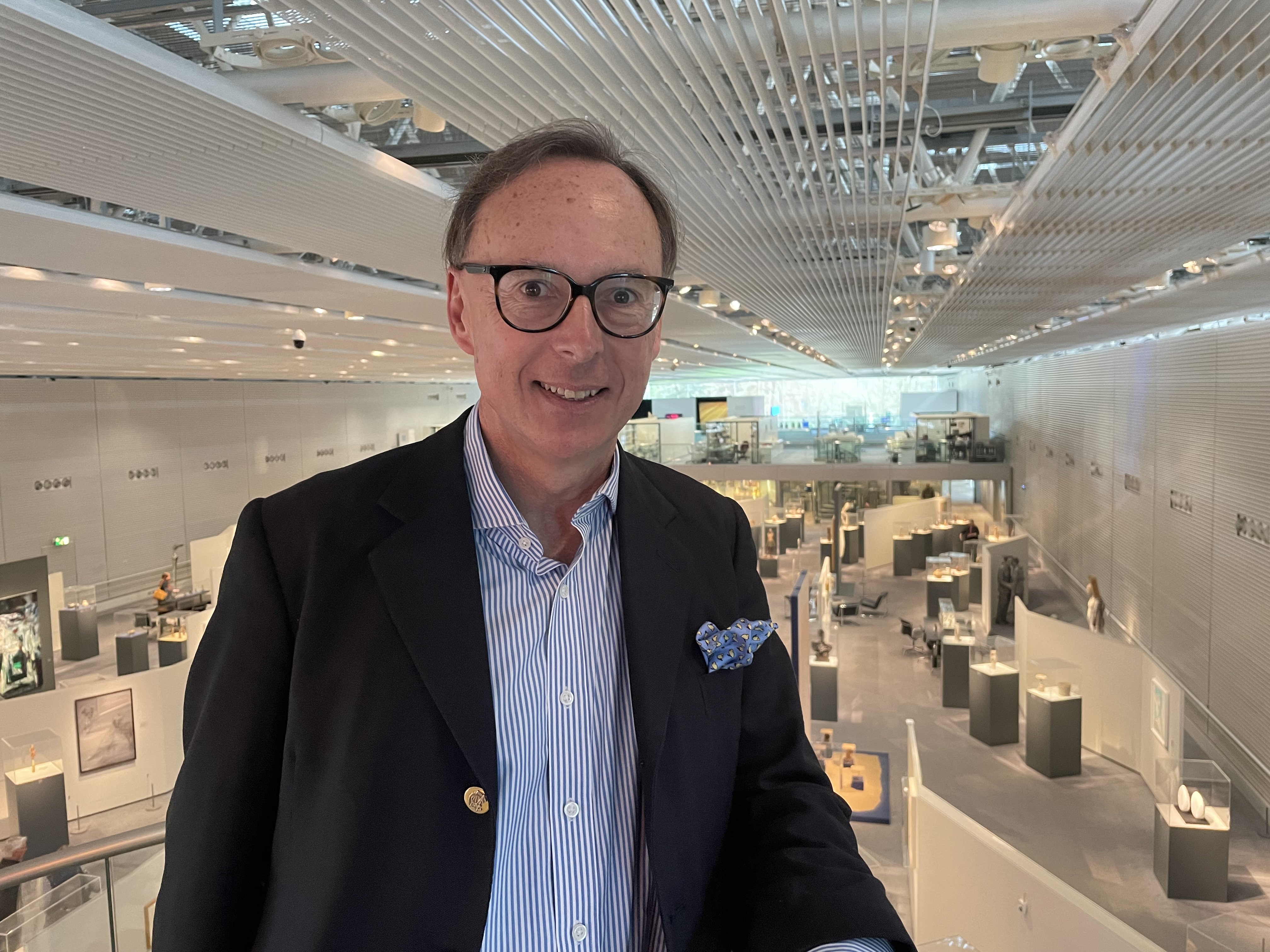We spoke to UEA alum Geoffrey Pelham-Lane (EAS82), a generous supporter of The Difference Undergraduate Scholarship and a passionate advocate for education. Geoffrey, who studied English Literature and History at UEA, shared insights into his career, the importance of education, and his dedication to supporting future generations.
Geoffrey has had a distinguished career in fund management, banking, and financial communications consultancy, starting with pivotal roles at NatWest Group and Financial Dynamics (now part of FTI Consulting), where he rose to UK Chief Executive and oversaw a management buyout. After leading Financial Dynamics through global expansion and acquisition by FTI, he co-founded Capital Market Communications (Camarco) in 2012. Under his leadership, Camarco was acquired by APCO Worldwide, drawn by its strong culture and services.
How does it feel to return to UEA?
It's hugely refreshing to come back. Walking around campus today, I see a lot of new developments, yet it's nice to see that the University has maintained its essence. I have always loved this space and remember it vividly from my time here in the 1980s. Even though that was quite a long time ago, my memories remain fresh. It's wonderful to be back.
 Geoffrey Pelham-Lane (EAS82) is a generous supporter of The Difference Undergraduate Scholarship and a passionate advocate for education
Geoffrey Pelham-Lane (EAS82) is a generous supporter of The Difference Undergraduate Scholarship and a passionate advocate for education
You did your BA in English Literature and a minor in History, and now you are a financial communications expert. How did that happen?
My mum was very supportive and encouraged me to study what I loved, which was English and History, and at UEA I had some fantastic, stimulating tutors and professors. I've always been interested in stocks and shares, and I wanted to get into the financial sector after my degree. I applied to some merchant banks and was very fortunate to be selected by a small bank called Leopold Joseph. This was unusual at the time since the industry was heavily Oxbridge-weighted. I took several courses and became an investment analyst in the fund management department, specialising in banks and insurance companies. I've always challenged the notion that you're either a humanities person or a mathematician. Analysing a complex balance sheet is no different from analysing a poem or a scene in a Jane Austen novel; both require critical thinking.
How else did your UEA education help you forge your career in finance?
My UEA education, particularly in English, taught me to think outside the box and develop strong analytical skills. These skills are crucial in finance.
In financial communications, you need to anticipate questions and prepare the company to address them, ensuring their strategy stands up to scrutiny. This involves a lot of foresight and preparation. That’s why I value analytical skills in hiring, often prioritising them over specific degrees.
I understand that you received a scholarship that significantly impacted your life and perspective. Could you shed some light on that experience and how it influenced you?
Sadly, my father died of a heart attack when I was 16, which was a sudden and shocking event. Without the Rank Fellowship, part of the Rank Foundation, I would have had to leave my school. The Rank Foundation, a large charity with a significant educational focus, stepped in to support my mother by paying my school fees. This enabled me to stay in school and eventually complete my education at UEA.
I believe two things are crucial in life and to the humanity of the world we live in: education and people. Firstly, everyone should be as well-educated as possible because education fosters a more civilized and humanitarian world. Secondly, in any career, especially in consultancy, people are the greatest asset an economy or company can have, and you have to make sure that your people are really motivated. Great people lead to great clients, and without great people, then your business will fail – it’s as simple as that.
When did you decide that you were going to give to UEA through The Difference Scholarship, and why UEA?
Because I was an alum here at UEA, it felt natural to support the University through scholarships. I’m passionate about ensuring that the University has the flexibility to use these funds where they can make the most impact.
One of the founding principles of your company, APCO, is being a catalyst for change. What advice would you give to the current generation of students on how they, too, can be catalysts of change?
First and foremost, I believe education is crucial. It's not just about specialising in a particular field but also embracing humanities and keeping options open for future endeavours. Flexibility is key because careers evolve - there are constant ebbs and flows.
My advice to students is to remain dynamic, value your strengths, and build upon them with each new opportunity. It's about finding continuity amidst change and leveraging your unique blend of skills to effect meaningful transformations.
Can you think of one fond memory that you have of UEA, and since we’re celebrating UEA’s 60th anniversary year, do you have a special birthday message for UEA?
Well, first of all, happy birthday, UEA! One fond memory I have from UEA is setting up a wine society in the early '80s with friends. It was a lot of fun organizing it, and it became the largest subscribed society at the University. This experience sparked my ongoing interest in fine wine, and now I can afford to enjoy some of those wines I couldn’t as a student!
)
)
)